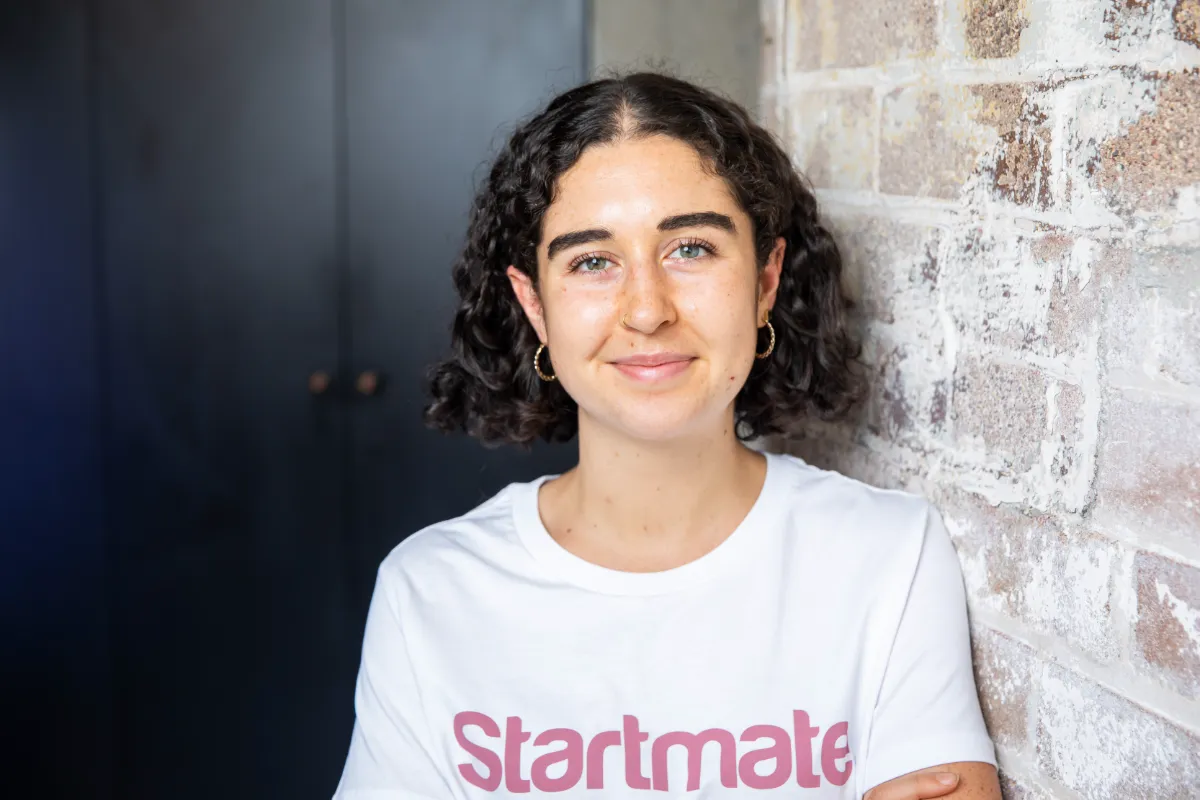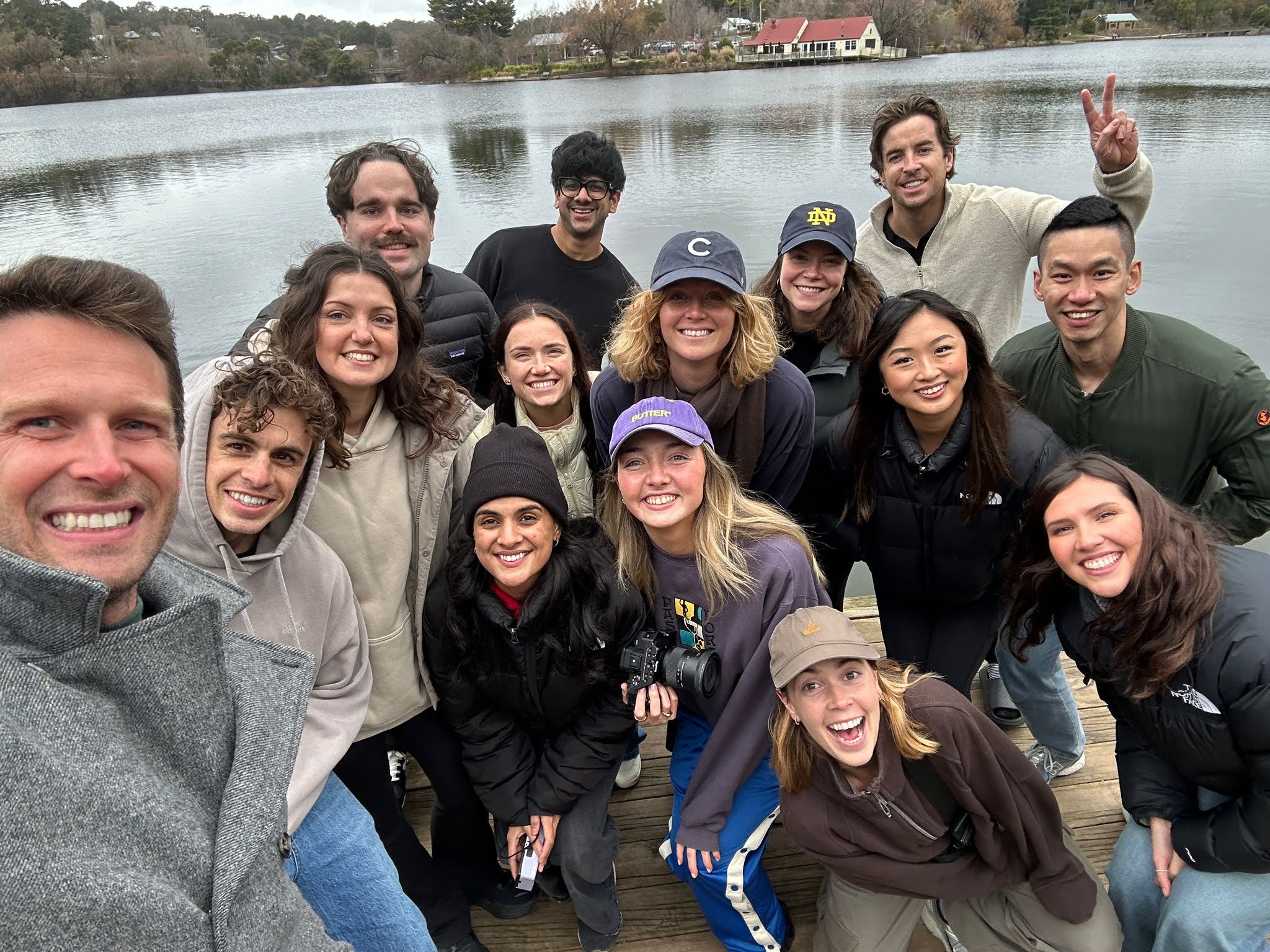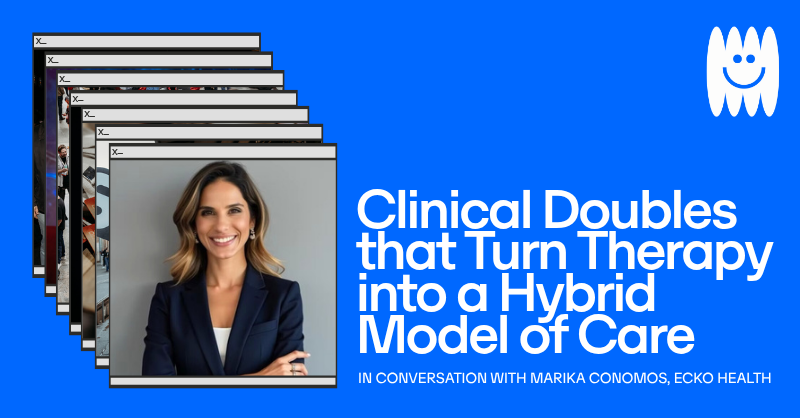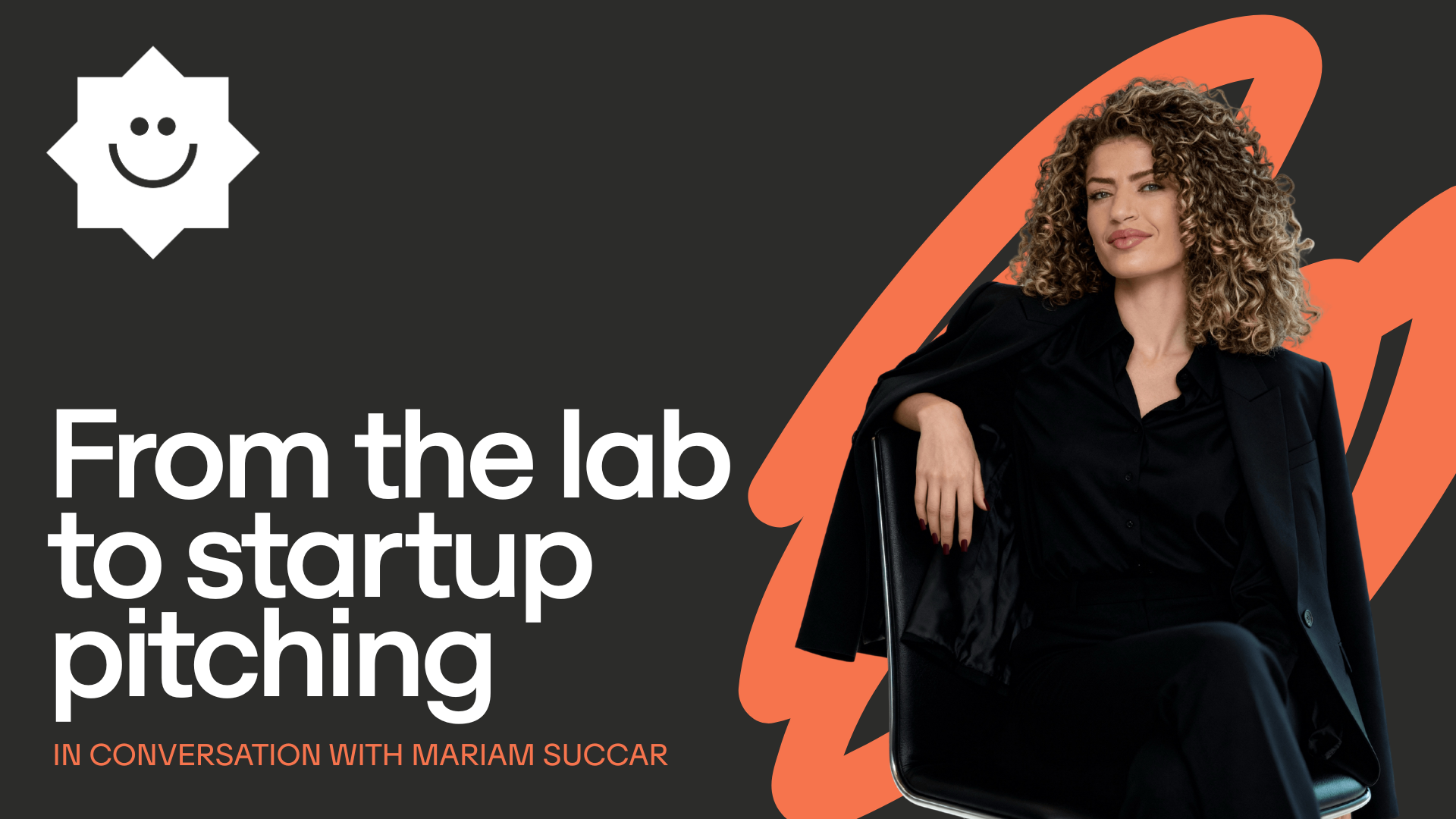Leadership is a muscle, strengths are situational, and sometimes founders need a bit of guidance when doing their best work. That’s where an executive coach can come in.
Because your whirlwind approach to meetings might not strike the right tune with your new board, your hands-on leadership style might not gel with your impressive external hires, and your preference for 1:1s might not be feasible when your startup grows to 150 employees. A coach can help you redefine your leadership style.
Or perhaps everything is going unbelievably well and you’re chasing that 1%. A coach can help here too.
At Startmate, our founders are always looking to perform at their best, so I reached to Lanterne Rouge Managing Director, BOLDLY Founder and Startmate Coach Alexandra Lamb to ask for her insight on executive coaching.
She walked me through how founders can:
- Identify they need a coach;
- Find and vet the perfect coach;
- Show up ready to work; and
- Redefine wellness into something attainable.
Let’s dive in, shall we?
When does a founder need a coach?
A misaligned skillset, a strained co-founding team, an influx of talent and a transformed operating structure are all reasons a founder might seek out a coach.
“Maybe a founder is leading leaders for the first time, or leading some high-value, external hires. They really can't afford to see those people fail,” Alex explains.
“If you've got co-founders, that dynamic is very important. So that can be a trigger as well. Even in the best marriages, for the best combinations of founders, there are always dynamics to work through.
“And leading through a system can be a big, big triggering moment where founders want to engage some support.”
But is this easier said than done? Surely it takes a great deal of self-awareness to acknowledge your leadership skills aren’t aligned with your startup’s growth stage. I put this question to Alex.
“Sometimes it comes from self-awareness, from a founder stepping back. Other times it can be noise in their atmosphere,” she tells me. “For example, board members or investors giving them not-so-subtle hints and nudges. They might be seeing evidence in their business, like turnover or key people leaving. Or it might be the result of feedback they're receiving from a customer base, because the culture of a leader does permeate through their products.”
Alex encourages founders to step back, “tune into the data points around them” and be self-reflective.
Questions to ask yourself
- “What are people telling me?”
- “Does it feel like noise?”
- “Do I feel stressed?”
- “Where am I leading my business to?”
- “The skills that got me here, are they going to get me there?”
- “What is the strength that's brought me to this point? And where is my weakness that I need to start thinking about?”
Asking yourself these questions is akin to assessing a business in (for lack of a better word) a SWAT, Alex explains. In other words, the same principles a founder would apply to assessing their business, they can apply to themselves as a leader.
How do you find the right coach?
If you’re a founder who thinks you could benefit from a coach’s guidance, you’re surely wondering where to begin.
“Most people start by asking their network, which is totally legitimate because good coaches come with a good reputation,” Alex explains.
“But before that, step back and think about what you’re looking for in a coach. Most people don't know.
“First, think about qualifications. Ideally, they have a background in psychology, because in order to drive your business forward, you’ll need to implement new mental models and new ways of thinking.”
Second, consider whether there is an industry or type of business model you want them to be aware of. The obvious example here is startups or tech.
“That brings you to quite a small group of people,” Alex explains. Now, when you’re reaching out to people in your network (your board, investors, fellow founders and friends) for recommendations, you’ll have clear criteria for them. Notably, having a smaller pool of candidates will actually make your search easier, Alex says, equating the alternative to a very time-consuming game of pin the tail on the donkey.
Once you have some referrals, you need to start thinking about screening who will be a good fit. This phase is called “the chemistry meeting”.
“Founders should have at least two or three questions they want to ask during the chemistry meeting. Maybe they'll meet two or three coaches, and they'll ask these same questions … and get a feel for how their answers compare and contrast.”
Example questions
- “What should I expect in terms of us working together?”
- “What's the theory basis you'd be using in our coaching?”
- “In terms of communication, what is the collaboration style I should expect?”
But these meetings are not just “a friendly pow-wow,” Alex says. “Founders should be asking themselves: ‘Is there just enough friction here? Am I getting a sense of being challenged, but at the same time, do I have a vibe that this person is relevant to me?’”
How do you prepare for your first coaching session?
“Coaching is very goal-oriented”, Alex explains, so once you have chosen a coach, make sure you get clear on what you want to work on.
This doesn’t mean your goals won't change over time, but it’s crucial you “at least come along with an initial objective”. Let’s say you come to your first session and say “this is related to building confidence for my next pitch to the board”. It’s likely “there’s a second loop and a third loop” to this goal journey, and the work you do with your coach will naturally progress from there.
Alex’s other suggestion is to arrive “willing to be thoughtful, reflective and challenged”.
“It's effortful. So expect that.”
Between each coaching session, you’ll have homework too.
For example, you might trial a new approach with your co-founder, and then unpack your learnings in the following session.
“You're going out into the real world and you're experimenting, you're acting out the way that you want to change, and bringing that back to coaching to debrief, discuss it, and then decide how you move forward.”
You’ll probably have one session every week or fortnight, “so you should expect actions in between that facilitate a measurable shift”.
Is there a link between coaching and high performance?
While your ideal coach will have a background in psychology, the coaching relationship isn’t always remedial, and isn’t always triggered by a problem.
The Tour de France was on when Alex and I spoke, so she drew inspiration from the event for her explanation.
“Every Tour to France rider has a coach — and it's not their specialist physiotherapist or mechanic or nutritionist,” she says. The coach will be focused on winning holistically, bringing all the elements together to get that half-a-second over competitors, improving by 1% or 2% by looking at the whole athlete. “Coaching is absolutely about that top end performance. It’s about taking strengths and optimising them, not just addressing weaknesses.”
If there are underlying issues to address, Alex says these conversations will come with time.
Perhaps you start with an easy thing to fix, which is skills-based, and then a few months down the track, work through a confidence issue, for example.
“The vulnerability builds as the rapport with the coach builds. You don't have to go in and go deep, straight from the start.”
What does wellbeing look like?
For anyone equating coaching outcomes with joining a gym, taking a holiday and embracing the infamous work-life balance, rest assured, you’re a bit off the mark.
“Most of the founders I know don't really resonate with this language of balance,” Alex explains.
“What they're doing is inherently unbalanced. They're really striving and finding new ways. They are bending time in terms of the capacity they have for their jobs. It seems a bit superhuman sometimes.”
For Alex, wellness is a perception, and it’s grounded in the fundamentals. Founders often forget to exercise, eat well and sleep, she explains, and while they can’t always do these things, it’s about keeping them front-of-mind.
And more importantly, it’s about self-talk.
“Founders are very vulnerable,” she says. “They make big bets and sometimes it doesn't work — and that can be very emotionally draining.” Founders need to make sure they are giving themselves credit regardless of outcomes.
Questions to ask yourself
- “Do I feel like I'm optimised?”
- “Do I feel like I'm doing my best work?”
- “Do I feel like I'm controlling the controllables, even though there's all this crazy happening around me?”
- “Do I feel like the chaos is organised, to a certain extent?
- “Am I petitioning off time to do the things that make me human?”
“Wellness is about defining where you do your best work, being realistic about the founder experience, but bringing in elements of self-talk and the human factor.”
“Is wellness taking a half-day spa day every week? Not really. Is wellness doing a nine-to-five? Not really. Is wellness that five minutes when you're standing at the coffee machine, getting your espresso, taking a moment to really be grateful or thoughtful or thankful or to just smell the coffee? I know that sounds like a small thing, but that is a moment of wellness.”
Ultimately, if you’re a founder who wants to optimise your strengths, grow alongside your startup, and outperform your competitors, you should consider working with an executive coach. You wouldn’t hesitate to employ a coach if you were training for the Tour de France… and startup life is strenuous, strategic, all-consuming, individualistic and risky too.
It’s also ideal for founders to seek out a coach before times of crisis. “If you come in with your hair on fire, it's a very different coaching relationship than when you can just foresee something might happen and you want to build capability,” Alex says.
So, if you’re a founder, don’t shy away from self-reflection and the data around you, and put in the work to find a coach that will both challenge and support you. The competitive advantage and leadership longevity you earn as a result will be worth it.








